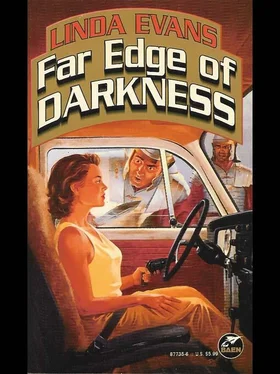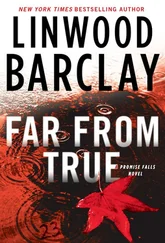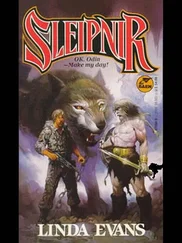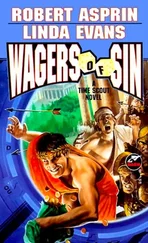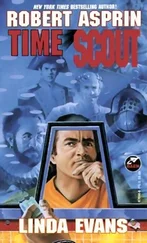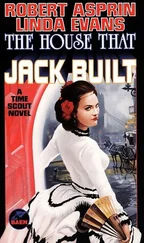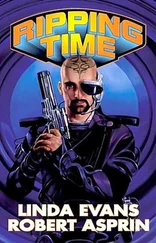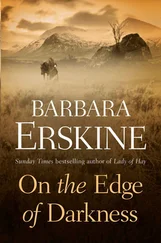Linda Evans - Far Edge of Darkness
Здесь есть возможность читать онлайн «Linda Evans - Far Edge of Darkness» весь текст электронной книги совершенно бесплатно (целиком полную версию без сокращений). В некоторых случаях можно слушать аудио, скачать через торрент в формате fb2 и присутствует краткое содержание. ISBN: , Издательство: Baen Publishing Enterprises, Жанр: Фантастика и фэнтези, на английском языке. Описание произведения, (предисловие) а так же отзывы посетителей доступны на портале библиотеки ЛибКат.
- Название:Far Edge of Darkness
- Автор:
- Издательство:Baen Publishing Enterprises
- Жанр:
- Год:неизвестен
- ISBN:0-671-87735-6
- Рейтинг книги:5 / 5. Голосов: 1
-
Избранное:Добавить в избранное
- Отзывы:
-
Ваша оценка:
- 100
- 1
- 2
- 3
- 4
- 5
Far Edge of Darkness: краткое содержание, описание и аннотация
Предлагаем к чтению аннотацию, описание, краткое содержание или предисловие (зависит от того, что написал сам автор книги «Far Edge of Darkness»). Если вы не нашли необходимую информацию о книге — напишите в комментариях, мы постараемся отыскать её.
Far Edge of Darkness — читать онлайн бесплатно полную книгу (весь текст) целиком
Ниже представлен текст книги, разбитый по страницам. Система сохранения места последней прочитанной страницы, позволяет с удобством читать онлайн бесплатно книгу «Far Edge of Darkness», без необходимости каждый раз заново искать на чём Вы остановились. Поставьте закладку, и сможете в любой момент перейти на страницу, на которой закончили чтение.
Интервал:
Закладка:
A thick central mast supported the main sail. The rigging fascinated her. Christ, I could get a dissertation out of the rigging, alone ... . The upswept stern made the entire boat look something like a swan ride at an amusement park or a medieval shoe. Probably where Xanthus' quarters are during long voyages. ...
Xanthus . She was supposed to be drugged, not gawking like a New York tourist. She glanced up apprehensively.
Damn.
Xanthus was staring at her. Suspicion flared in his dark eyes. Sibyl managed to recover a properly vacuous look only with tremendous effort. If Xanthus suspected Charlie hadn't drugged her... Sibyl cursed the slave-trader silently and held still under his scrutiny until he was satisfied. Xanthus turned his attention to Charlie, who had finally managed to crawl up onto the rolling deck.
The ruddy light of sunset caught the scars on his body, the barely healing welts in his back. Sibyl winced at almost the same instant he did, as scabs pulled and tore visibly. Chains rattled as he dragged himself to his feet with the help of his crutch. His head came up slowly. He towered over Xanthus, taller, even, than the burly sailors. At least six-foot, almost naked, lean and muscled...
The scars on his leg reddened in the sunset. His hand tightened around the crutch. Offshore wind ruffled carroty curls that someone had chopped off, probably with a dull knife. She tried to imagine him in a police uniform, then erased that image. He was a detective, an undercover cop. There'd be no uniform. She adjusted the mental image to jeans, a faded t-shirt, maybe a jacket to hide the shoulder holster he'd probably be wearing... .
Dying sunlight caught a glint of steely determination in his eyes. He met her glance, then looked away without reacting. Professional training. Sibyl ordered herself not to feel hurt and tried to copy his method.
Xanthus, however, had plans for Charlie to ensure he couldn't so much as attempt escape. Without giving him the slightest benefit of the doubt, he ordered Charlie stripped and chained tighter.
Sibyl couldn't watch. But she couldn't not watch, either, risking tiny peeks that jelled her blood. Worse, Charlie yielded to it without a sound. Two years in Xanthus' hands, he'd said... . She found it painfully difficult to breathe. Two whole years. And unless they escaped during the next few hours, every minute of his struggle to stay alive would be for nothing.
We can't die this way. We can't...
They had come into harbor above the town proper. Sailors were busy dropping anchor beside a utilitarian wooden quay completely unknown in modern times. Xanthus, thank God, turned his attention away from the thoroughly subdued Charlie. He huddled at Xanthus' feet, completely submissive, completely naked now, a tight rope around his throat to throttle any fight out of him.
Xanthus hadn't hurt him, he'd just made certain Charlie was humiliated thoroughly in the process of preventing his escape. Although Xanthus hadn't hurt him this time , Charlie was covered, top to bottom, with old, moderately recent, and new scars. Even Charlie's buttocks bore terrible scars that looked as though massive claws had ripped him open.
Leopards...
She shut her eyes, then reminded herself forcibly that she, too, had a part to play. Remember, you're drugged. A zombie. Don't think about what's coming, for either of us. You're a zombie... .
Little frisons of electric terror ran along her nerves every few seconds—every time she thought about Bericus and Tony Bartlett. He'd be waiting at the villa, just to be sure of her. How're you planning your escape, you bastard? Maybe she and Charlie could overpower him, somehow, maybe even get back to the twentieth century... .
Right, Cinderella. Wake up. The party's over and the prince never found the glass slipper . They had to plan their escape to survive in this time. Anything else was tantamount to suicide.
Activity along the shoreline eventually caught Sibyl's attention. Herculaneum, a city of four or five thousand, rose precipitously from the water, built on a series of terraces in a long, steep hillside that formed a small peninsula. That peninsula jutted out into the Mediterranean, faced by a stone seawall that fronted the whole town. A very narrow strand between the stone wall and the sea was littered with beached fishing boats. Their owners were busy dragging them out of the water for storage in the infamous arched boat chambers.
Sibyl knew this waterfront. Knew it well. Too well.
Near the center of the seawall, opposite the quay where Xanthus had tied up his ship, was the stone staircase she remembered. It led up from the beach, then branched like a capital Y into two other staircases. They led in turn up along another steep wall which formed the second terrace of the town. On the first terrace, just to her right, were the Suburban Baths. Beyond them, on the next level up, would be the House of the Stags, where they'd found the glorious statue of drunken Hercules—the patron deity of the town—and another of hounds bringing down a stag.
A vastly wealthy patrician had owned that villa—not only was it near the sea, on prime real estate, giving a breathtaking view of the Mediterranean from its upper-story windows, but the house hadn't been broken up for apartments, which some of the bigger villas had been. Next door was the House of the Mosaic Atrium, another of the most beautiful villas found in any of the buried cities.
Off to the right, back in the heart of town, toward Vesuvius, she could see the rooftops of the palaestra, where athletes trained. To the left, even farther back and marginally away from the mountain, was the 2,500-seat amphitheater. In the distance she spotted a small arena completely unknown in modern times. Dr. Clarke was right . It was squarely beneath modern Ercolano. It would probably never be excavated. Like the theater, which had been found in the eighteenth century, it gleamed in the dying light.
Between theater and palaestra was Herculaneum's basilica, the pulse-point of town, along the Decumanus Maximus. Citizens came to seek justice or to do business at the basilica, which was flanked by famous equestrian statues of M. Nonius Balbus. That wealthy patrician had restored the city's walls and gates and the basilica itself after the earthquake in a.d. 62. Emperor Vespasian had restored the Temple of the Magna Mater—and there it was in the distance, rooftops gleaming in the sunset. The great Magna Mater, Phrygian Cybele, whose priestesses bore Sibyl's own name... .
In her mind's eye, Sibyl recalled the covered portico along the northern section of the Decumanus Maximus, under which were small shops. The other, southern, edge was lined with houses, the monumental entrance to the Forum, the Collegium Augustalium, and the cult center of the Cult of Hercules.
The whole town faced the sunset. Terraces surrounded many villas, especially near the outskirts, open to the cool evening breeze and a spectacular view of the sea. Vesuvius loomed considerably higher than its denuded modern cone. The mountain brooded above the town to the east-southeast, painted by the brilliant dyes of sunset. South along the shoreline, if one followed the road that led through town, one would eventually come to Oplontis and Pompeii, and from there, around the coast to a peninsula that jutted southwestward toward Capri, to wealthy little Stabiae.
The city walls ran along the coastline to gushing, torrential streams on either side of the little jut of land. Water poured down the countryside from Vesuvius and emptied into the Bay of Naples, forming little harbor entrances on either side of the city.
Neither harbor was known in modern times.
Her disseral speculations had been correct, though. The plethora of timbers, half-finished hulls, and stacked planks at the nearest harbor confirmed the theory she was trying to substantiate in her doctoral dissertation. The thriving shipbuilding industry spread out before her must have supported Herculaneum's economy, along with fishing and the vast wealth of patricians tired of the industrial noise and bustle in Pompeii and Neapolis—or Rome, itself. Herculaneum's streets, unlike Pompeii's, were not deeply rutted by the cart wheels of shopkeepers and industrialists producing bread, export-bound fish sauce, or textiles.
Читать дальшеИнтервал:
Закладка:
Похожие книги на «Far Edge of Darkness»
Представляем Вашему вниманию похожие книги на «Far Edge of Darkness» списком для выбора. Мы отобрали схожую по названию и смыслу литературу в надежде предоставить читателям больше вариантов отыскать новые, интересные, ещё непрочитанные произведения.
Обсуждение, отзывы о книге «Far Edge of Darkness» и просто собственные мнения читателей. Оставьте ваши комментарии, напишите, что Вы думаете о произведении, его смысле или главных героях. Укажите что конкретно понравилось, а что нет, и почему Вы так считаете.
